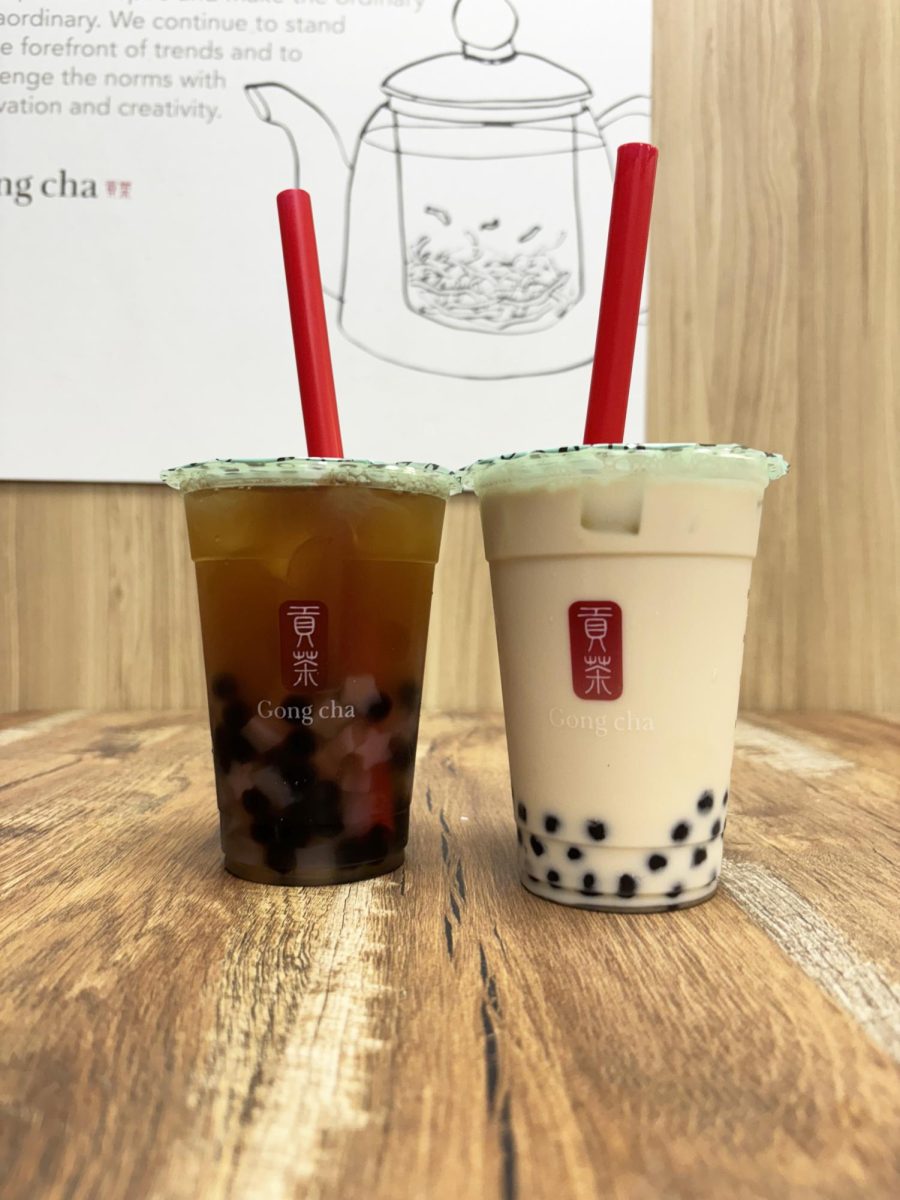As I scroll through my TikTok “for you page,” I can’t help but feel a growing concern – a fear of missing out, not on experiences, but on material possessions. Every other video features a new trend, a new “must-have” item. The pressure to keep up with the ever-changing landscape of what’s “in” and what’s “out” is relentless – and the only way to keep up, is to keep buying.
I’ll confess – I’ve definitely fallen victim to the allure of several Tiktok-sponsored products. When that latest Summer Fridays flavor, that supposedly life-changing Tower 28 spray, or the cutest Djerf Avenue sweater flashes across my screen, it’s as though an unspoken pact is formed between my curiosity and the tantalizing appeal of ownership. The swift click of the “Add to Cart” button becomes almost instinctual, a small thrill of anticipation preceding the eventual arrival of yet another package at my doorstep. The swift click of the “Add to Cart” button becomes almost instinctual, a small thrill of anticipation preceding the eventual arrival of yet another package at my doorstep. — Neena Atkins
Yet, the price that I and the rest of us pay for purchasing these so-called “trendy” products is too high: for our wallets, the environment, and workers worldwide.
The fast fashion industry, notorious for its detrimental environmental impact, stands as a significant contributor to this culture. Production and transportation of these inexpensive clothing items have grave consequences, including deforestation and a surge in greenhouse gas emissions, with just manufacturing alone accounting for a striking 2-8 percent annually – surpassing the combined carbon footprint of international flights and maritime shipping. Furthermore, the industry’s overall practices adds to a startling 20% of all industrial wastewater. Emphasizing the human cost, the heavy reliance on exploitative labor practices leaves many workers in developing countries facing abysmal working conditions and meager wages.
The negative effect of fast fashion on the planet is well-documented, but we shouldn’t underestimate the substantial influence of TikTok in glorifying this culture of overconsumption. Influencers showcase their latest shopping sprees, endorsing merchandise in a seemingly endless loop.
A survey conducted by UNiDAYS revealed a harsh reality: fashion purchases made by 49% of nearly 20 million respondents were made due to social media’s pressure. These statistics demonstrate how TikTok is leading us down a dangerous path of materialism. Beneath the surface, the platform’s algorithm is meticulously designed to keep us engaged, and the goods it advertises are often unsustainable, being manufactured with ecologically taxing materials.
Fortunately, we can outsmart the algorithm by being selective with the content we digest to minimize exposure to unhealthy and consumer-driven fads. For example, consider following influencers who advocate for environmentally conscious shopping approaches, like Christina Mychas (christina.mychas on TikTok). She posts “anti-hauls,” de-influencing popular items, and participates in “no-spend months,” encouraging healthy spending habits.
An additional technique involves slightly restricting our access to TikTok by setting realistic time limits for the app or consciously closing out of it when we sense ourselves spiraling into mindless scrolling. This tactic lessens our susceptibility to the hypnotic pull of trendsetters’ posts, therefore helping curb overconsumption.
While it’s true that reducing overspending and TikTok screen time could hurt employment rates, particularly for influencers who rely on paid promotions, get-ready-with-me’s (GRWMS), and their Amazon storefront to generate income, we need to consider the larger societal repercussions. Is it really worth supporting an industry that perpetuates pollution and capitalizes on its workforce?
As we confront the pressing threat of climate change, we can no longer afford to ignore overconsumption’s ramifications. We can fix our past mistakes by following rational and ethical influencers and wrestling control over our TikTok algorithm. It’s time to join in on the new trend of mindful consumption, and escape the grip of Fashion FOMO.




























